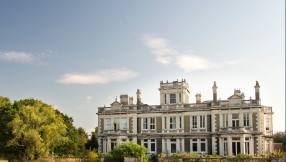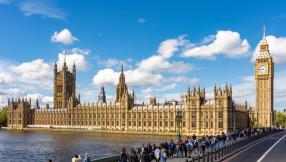Dear Archbishop Justin,
You and I met once – though I appreciate you probably won't recall the event. It was the consecration of the Bishop of Lewes at Westminster Abbey, and we shook hands. I looked you straight in the eyes and said, 'I pray for you ever such a lot.' And you were, I think, pleasantly startled, and laughed and said something like: 'I definitely need it.'
Of course you will not remember. But I still pray for you. And indeed just yesterday your name came up on my PrayerMate phone app and so I did mention you in my prayers. But I must admit I did so feeling heart-broken.
In my mind was your latest interview, with former spin-doctor Alastair Campbell, for GQ magazine. You were asked a direct question, which was: 'Is gay sex sinful?' And your reply was: 'You know very well that is a question I can't give a straight answer to. Sorry, badly phrased there. I should have thought that one through.' At this point the interview transcript then states: '[Pause, mildly embarrassed.]' It makes me wince just writing it.
Pressed on why you couldn't give an answer you then said: 'Because I don't do blanket condemnation and I haven't got a good answer to the question. I'll be really honest about that. I know I haven't got a good answer to the question.'
In some ways I feel sympathy. I was once interviewed by a radio reporter on why I was leaving journalism to get ordained in the Church of England. The first question was, 'Aren't you a rat joining a sinking ship?' My response was so incoherent and flustered that I don't think the interview was ever broadcast.
But the crucial difference, of course, is that whereas I didn't see that question coming, I think we could agree, with the best will in the world, that in your situation being quizzed on the church's view about sexuality was really rather predictable. And again I find myself wincing in writing this. It's embarrassing for all of us.
Of course, honesty is a commendable virtue. And wrestling with difficult issues is to be admired. But most of us in parish ministry would tend to think the best place to do this is privately, perhaps with a few trusted friends, rather than aloud, in an interview, while speaking as de facto leader of the 85-million strong worldwide Anglican Communion.
What shall we local church ministers – not to mention our flocks – now do? What shall we tell our gay friends who want their physical relationship to be celebrated? What shall we tell our same-sex attracted celibate friends who have sacrificed a very great deal in personal terms to be faithful to the call of Christ as traditionally understood? Shall we say gay sex is sinful on Mondays, Wednesdays and Fridays – but fine on Tuesdays, Thursdays and Saturdays? In practice, what will happen is that we will all look to other church leaders now. Many conservatives will look to GAFCON while liberals will look to the Scottish Episcopal Church, which recently recognised same-sex marriage. How can we look to you when you have nothing to say? Increasingly a split looks inevitable.
Archbishop, in some ways I admired the approach of your predecessor Rowan Williams on this issue. He had his own views, it was apparent – but he recognised the discipline of the church and subordinated his own thoughts to that teaching. And we all have to do that: in a way, that's the heart of discipleship. 'When Christ calls someone,' as Dietrich Bonhoeffer wrote, 'He calls them to come and die'. We are to put our entire lives at the feet of Christ and die to self – which paradoxically is the way to life. Part of that involves submitting our own views and ideas to His teaching as the church has discerned it. Whatever our own thoughts, the Church of England – and Anglican Communion – does still have a clear view.
And perhaps we need to learn to tell 'a better story' too. Indeed, 'A Better Story' is the title of an interesting new book by Professor Glyn Harrison, a university lecturer, psychiatrist and academic – and an Anglican lay preacher. The cover says: 'What if we faced up honestly to our sub-Christian culture of shame? What if we re-imagined what it means to made sexual in the image of God? What if we remembered that we flourish when we live in harmony with God's design? And what if we left behind the broken promises of the sexual revolution to tell a better story of our own?'
A better story. I like the sound of that. And wouldn't it have made a better story – for everyone – if you had been able to tell just such a story when you were asked that question? I will continue to pray for you.
David Baker is a former daily newspaper journalist now working as an Anglican minister in Sussex, England. Find him on Twitter @Baker_David_A













